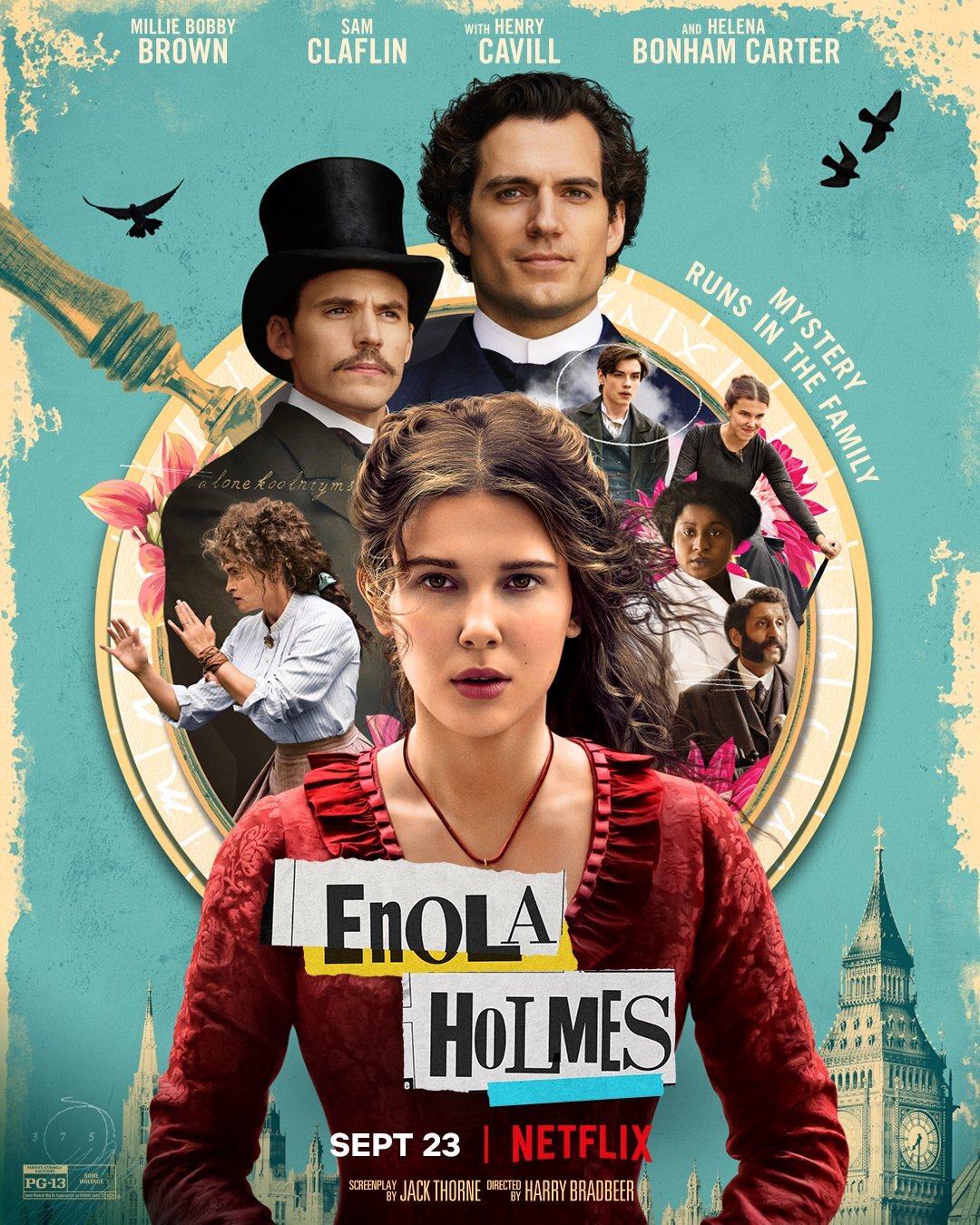Enola Holmes is a rare example of a film in which having a female protagonist is genuinely essential for the the strength of the film.
Frequently, modern films have “adjusted” their protagonists for the obsequious purpose of “wokeness,” and unsurprisingly this type of film always falls flat.

In stark contrast, Enola Holmes showcases a counter example, where Enola has a depth of character that easily rivals any other adventure film. In fact, I think that her character is the entire reason that this movie works so well. And it does so masterfully, against the grain of the typical style of female protagonist:
Enter, stage right: the Strong Female Lead.
She’s an assassin, a spy, a soldier, a superhero, a C.E.O. She can make a wound compress out of a maxi pad while on the lam. She’s got MacGyver’s resourcefulness but looks better in a tank top.
Acting the part of the Strong Female Lead changed both who I was and what I thought I was capable of. Training to do my own stunt work made me feel formidable and respected on set. Playing scenes where I was the boss firing men tasted like empowerment. And it will always feel better to be holding the gun in the scene than to be pleading for your life at the other end of the barrel.
It would be hard to deny that there is nutrition to be drawn from any narrative that gives women agency and voice in a world where they are most often without both. But the more I acted the Strong Female Lead, the more I became aware of the narrow specificity of the characters’ strengths — physical prowess, linear ambition, focused rationality. Masculine modalities of power.
Brit Marling
Certainly, Enola Holmes still leans into the trope of the strong female lead. She has an unconventional upbringing that imbues her with the skills necessary to fend for herself—most definitely at odds with the traditional limitations of a feminine education. Despite this, I can understand why the filmmakers decided to do this. From a dramatic perspective, the limitations of women in society prevent female characters from easily—and key to this is, without suspension of disbelief—going on the classical dramatic adventures.
It’s difficult for us to imagine femininity itself — empathy, vulnerability, listening — as strong. When I look at the world our stories have helped us envision and then erect, these are the very qualities that have been vanquished in favor of an overwrought masculinity.
Brit Marling
Enola Holmes, however, is not just a man in a pretty women’s body. Instead, her femininity is central to her ability to accomplish her goals.
We as the audience are treated to her authentic perspective. We are treated to her emotions—a glimpse into her thought process. It’s well executed too, breaking the fourth wall that really helps bring the audience closer in a way that feels very modern, despite the period genre.
The inherent limitation that society imposes on women become obstacles that drive the plot forward and provide unique challenges to overcome. But the way she breaks free isn’t through brute force. Holmes, at times, operates within the limitations, using them to her advantage.
Enola is at least partially the stereotypical “strong female lead.” But her character is well-balanced with strength and intellect in a way that is uniquely hers. Still, in popular American cinema, there is a dearth of films that represent female characters without the unconventional upbringing and masculine strength. This is an area where Bollywood does an exceptional job—Gunjan Saxena and Shakuntala Devi are good examples of this—where a female lead highlights her personal struggles in a way that is entirely unique to their character. It would be nearly impossible to substitute those characters with men and have the story work.
This is the type of filmmaking and storytelling that I think modern films should aspire to.
Dossier
“Enola Holmes,” by Harry Bradbeer, September 23, 2020.
“I Don’t Want to Be the Strong Female Lead,” by Brit Marling, February 7, 2020. https://www.nytimes.com/2020/02/07/opinion/sunday/brit-marling-women-movies.html
“The Drama of Flight, One Radio Call at a Time,” by David Mamet, February 1, 2019. https://www.flyingmag.com/drama-flight-one-radio-call-at-time/
